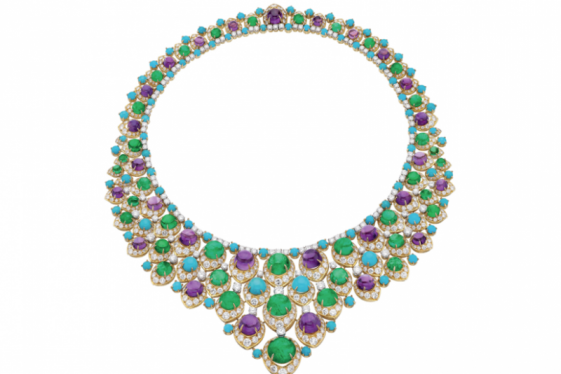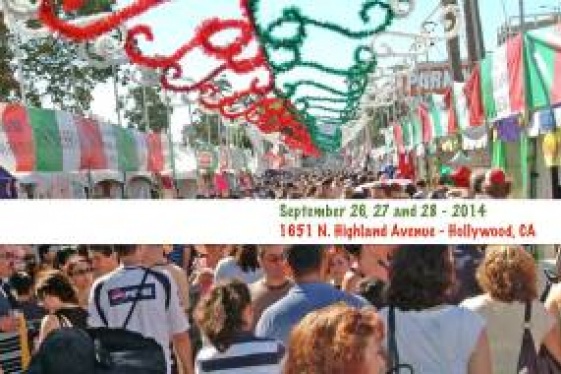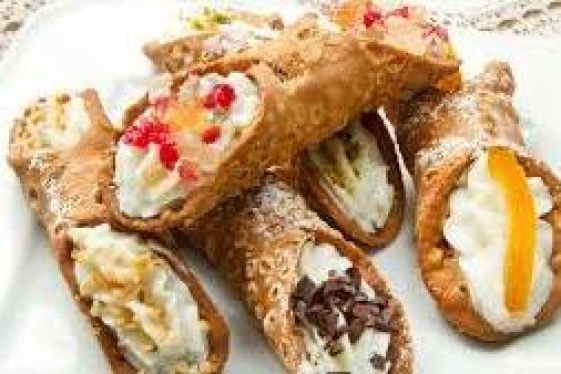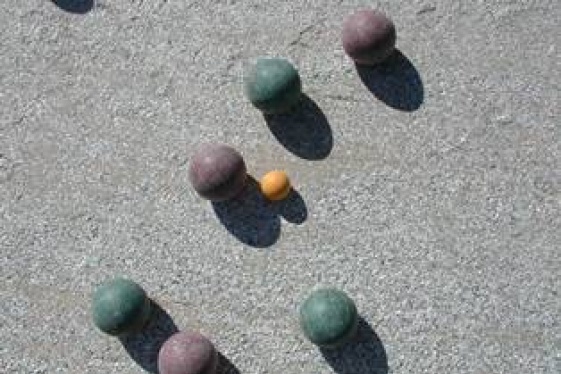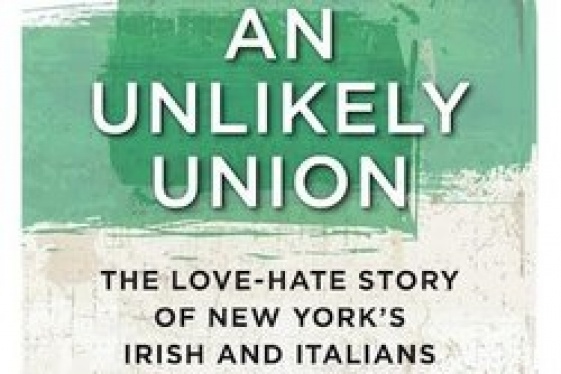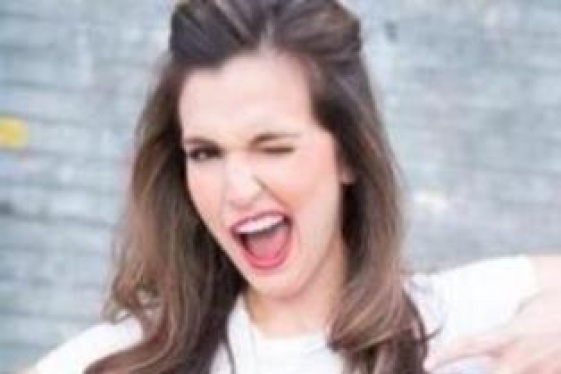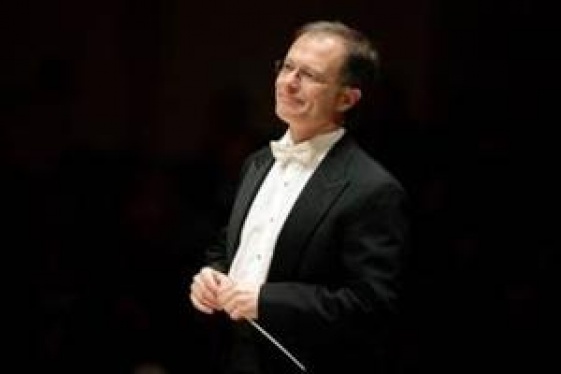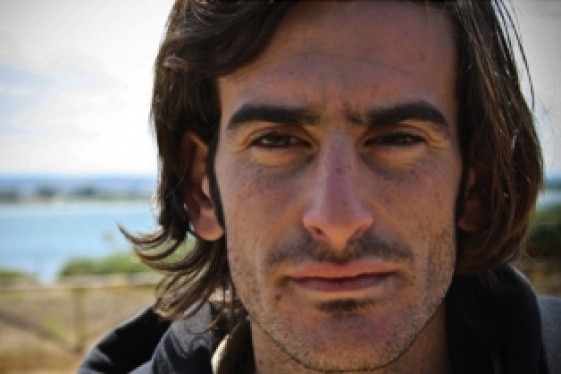
Pamela Enzweiler-Pulice (Author of the documentary "The Dick Biondi Film")
Un documentario su Dick Biondi, "The Wild I-tralian"

The story of Dick Biondi is unknown to many. I didn't know about it myself, but today there is who is working on a documentary that will tell all Americans, and in particular those of Italian origin, about the life and career of the number one DJ in the United States in the early '60s, the first ever to play the Beatles on an American radio.
Pamela Enzweiler-Pulice, a long-time fan and friend of Dick's, is our today’s guest. She is the driving force behind the creation and production of this interesting documentary. We will learn to know the great Dick Biondi, and to discover that his gifts and the details of his character are those typical of the Italian Americans that we love so much here at We the Italians.
Pamela, first of all: who is Dick Biondi, and how did he start working in radio? How did he become the number one DJ in America?
Dick Biondi is one of the most influential radio personalities of the 20th century. He was the first to play a Beatles record on the radio in the United States. He was a rock and roll pioneer who introduced Elvis Presley, Jerry Lee Lewis, Bobby Darin, and many artists, not only on the radio but at his sock hops which he was known for. He later introduced The Beatles and The Rolling Stones in concert.
He was the number one disc jockey in America in 1961 and 1962. I met him in 1961, and I didn’t’ realize he was number one at that time because he was such a sincere, humble man. And that’s why I started a fan club for him.
Dick Biondi is a member of Broadcast Hall of Fame, the Rock and Roll Hall of Fame, and, this is so funny, he was probably the … most fired disc jockey ever. Dick has been fired 25 times during his career. He calls himself “The Wild I-tralian.” Dick was so unique back in the days when we were listening on our AM transistor radios.
In those days disc jockeys were polite, and they would give the time and temperature, and all of the sudden you got this wild, crazy guy on the radio that we had never heard anything like. It was just so amazing. He was a real trendsetter. He had such passion it came through the microphone and connected with you. He was like electricity, a personality with unbelievable charisma.
Dick was born in 1932 in a little town called Endicott, in Upper State New York. He came from a working class family and one day he went to visit his grandparents, he used to go there in summer. He was meandering around town in Auburn, New York, and he found a local radio station. He was completely captivated and would go back day after day and watch the man at the microphone. One day, that man invited him in, handed him a commercial to read on the air and said: “Hey, kid, can you read?” and Dick said: “Yeah.” He’s on the radio reading this commercial, and he didn’t even know he was on the air. When he got home, his family and his friends were very excited: “We heard you on the radio!”: I guess that’s when he got hooked.
From that moment on, he was a big fan of radio, but it wasn’t until high school that he started to throw all of his time to radio. He says he was a terrible high school student because he was always at the radio station. He was a gofer and he would meet a lot of people. One of the people he actually met was Rod Serling from “The Twilight Zone”. He would bring coffee and doughnuts for him. As soon as he graduated high school in 1950, Dick went off and started his career. He went down south to Alexandria, Louisiana, and he started to play Race records: that was before civil rights, you know Jim Crow’s south, and sometimes he would find himself being the only white person in a black club. It was quite an education for him and instilled his love for Rhythm and Blues and when Rock and Roll hit America, he was ready. He went up north in Youngstown, Ohio and that’s when he started the career we know him for… Top 40 radio.
He soon became well-known as a hit maker in Youngstown. He would play a song and he would get people so excited, they would run down to the record store and buy it. Pretty soon, the word got out to the record companies that “Hey, this guy can sell records.”
Then, Dick started doing sock hops and he would have all of the big top artists coming out. A sock hop is a dance where you take your shoes off and dance in your socks. The reason is because they usually did it on a gym floor, which is a wooden floor, and they didn’t want to scuffle it all up, so they would tell the kids to take their shoes off. So many people started coming to the sock hops, that’s when he met Elvis Presley, Jerry Lee Lewis, Frankie Avalon, Bobby Rydell and Bobby Darin, whom Dick became very close friends with.
He was very well-known in Youngstown, and then he went on to Buffalo, New York. He was so popular in Buffalo that he owned the whole Eastern Seaboard of the United States. He was known for being just a wild man. He would do crazy things, like he said on the radio one day that there would be no school and I guess that the absentee rate was just unbelievable.
One day he was in his studio doing his job and the boss came in. He was mad at his wife who was throwing some kind of party and kicked him out of the house. So he came over by Dick and walked in and said: “You’re a terrible disc jockey, you better shape up or you’re going to ship out.” Dick got really upset and he started blaring over the radio: “My boss is such a jerk, he’s driving a grey convertible and he’s going downtown to the theater. If anybody sees him, throw a rock to the window.” Sure enough, someone threw a rock through the window. That’s how crazy he was. And he got fired.
Two weeks later, he got a telegram from Sam Holman who was the guy who hired everybody in Chicago and was starting a brand new radio station called WLS. Dick was hired as the lead guy. He changed the radio world in Chicago. Chicago was a big Mid-western city with a big farm community, and so the station had plenty of farmers as listeners: and Dick changed all of this, overnight to a Rock and Roll radio. People were going crazy, and I was one of them. I’ll never forget the first time I turned on the radio and heard that music. I was “Oh My Gosh,” because we almost couldn’t find rock and roll back then. Suddenly, we had found our station and when Dick Biondi came on at night, oh my goodness, that was it. That’s when my story comes in. I got to know him, and we have remained friends all our lives.
One of the most important moments in his career was in February 1963, when he introduced the first Beatles record to be heard on the radio in the U.S. …
It was February 1963 when a local record company representative came over with a record called “Please Please me” which was on the Veejay label, he handed it to Dick and said: “I think you might like this, take a listen.” Dick listened to it and he played it, and he kept playing it until he got it on the WLS Silver Dollar Survey, which came out every week. Then … he got fired! He took the record to Los Angeles to KRLA and he played the record the second night he was on the air. The phones started to ring and the kids were saying: “Take that crap off and play The Beach Boys!” Because nobody knew who The Beatles were in America. Dick was a year ahead of his time. A year later, The Beatles were all over the country, Dick was actually there when they were introduced at the Hollywood Bowl in Los Angeles. He has some great stories about his time at KRLA: like riding in the limo with The Rolling Stones.
Is there an anecdote, a funny and/or significant story about Dick Biondi, that you want to share with our readers?
There are so many. He kept riding the wave of success in Los Angeles and in New York City he did a national syndicated show for young America. It lasted for about a year. Then he ended up back in Chicago, the place where Dick found his greatest success, the city he calls his second home. Chicago just absolutely loves Dick Biondi, everybody knows his name, everybody adores this man that grew up with them, and a lot of us did. So he was back here in Chicago and he has been on the air until the spring of 2017. He has had a 6-decades-long career. It’s pretty phenomenal: very few disc jockeys were known nation-wide, there were just a handful of them; and for him to last that many years, it’s pretty incredible. It’s a testament to the way he connected with people. Dick loves people, he has an Italian upbringing: he is honest, sincere, very generous with his time. Whenever he could help someone, he would. I think that’s why he is such a beloved figure, he has always dedicated his life to helping others. He wanted to be a priest when he was a boy, I think that even as a DJ he used his voice to bring good to the world. We have great stories from a lot of people who he has touched throughout his life. So this is a tribute to Dick.
Generous, wild, talented: this speaks definitely Italian American to me. Who is his favorite Italian American singer?
He loved Elvis Presley, but his favorite all-time singer was the very talented Bobby Darin: they became very close friends. Bobby actually went and had an audience with the Pope in Italy and had some medals blessed, and gave one of those medals to Dick. And Dick cherishes that medal to this day. It means a lot to him, because Bobby Darin died early, much too young. Dick was supposed to go see him but that day he had had surgery in a hospital out in Los Angeles and Dick called him up and said: “I’m going to come see you tomorrow after the surgery.” Bobby died on the operating table. Dick never got to say goodbye to him and that really upset him.
He did a lot of charity, too: what was the annual Dick Biondi Toy Drive?
Dick Biondi started doing Christmas shows way back in his early career. It’s his favorite holiday and it means a lot to him because he had a big Italian family, they would always come together for the Holidays of course. So, Dick has a soft spot for children who don’t have this luxury of having Christmas presents, so he went out of his way every year to have the Dick Biondi Toy Drive up until few years ago: he got a little older and he couldn’t keep it up anymore.
The Dick Biondi Toy Drive was a 36-hour marathon. He would be on the air for 36 hours, and he would have people coming from all over bringing unwrapped toys for the kids, Toys for Tots got involved. Different charities got involved over the years and he had a lot of his friends from the music business come to his Toy Drive and they would perform. The place was absolutely mobbed with people. They would be there, they would bring in pizza, Italian olives, and all kinds of stuff, it was just great. It’s going to be in the movie, we actually have some footage of a couple of Toy Drives that Dick did. He spread a lot of good in the world with his Toy Drive.
How did you come up with the idea of making a documentary?
I met Dick in 1961. I was 13, I started a fan club for Dick. I lived in a suburb of the city of Chicago, and after I met Dick, I started going out of my safe little room and going down to the city and going to sock hops, and going to WLS radio studios. Wherever Dick was I would try to go and be part of it. I would write a newsletter for my Dick Biondi fan club. So when Dick got fired that all ended. We couldn’t believe Dick was gone. Over the years, Dick and I have stayed in touch.
I’ve always known Dick’s story, because I lived it with him and as the years went by, I got into the video business myself. Later in life I actually started my own video production business and I started doing memoirs for people. I showed them to Dick and he really liked them. And I kept thinking in the back of my mind: “I wonder if I could do Dick’s story.” I finally I asked him one day if I could, and he said yes. That’ when it started.
The thing is I have never done a documentary before, this is my first one and it is quite different from just doing a video. There is a lot involved in it which I have been learning. It’s quite an undertaking. It’s a passion project for me. It’s been five years now and we hope to get it done, we are still raising the money. Funding….that’s really the biggest hurdle. It’s really expensive to make a documentary film for broadcast television. We are going to run this on PBS when it’s complete. We have several PBS stations that are interested, we just need to get it done so that’s what we are working toward.
Please tell our readers something about the fundraising event of next April 28. How can we and they help?
We are having a fundraising event in Chicago in a place called Bourbon Street. It’s a big room with a big stage, we’ve got a famous band, the legendary New Colony Six, a Chicago-based rock and roll band from the 1960s that had a lot of major record hits. Dick Biondi was a friend to these guys and promoted them back in the day. We are honored to have them as a headline act along with many other Chicago bands and disk jockeys. We also are going to have an auction. We have an autographed guitar from the band Chicago that we are going to be auctioning off. Another autographed guitar from a local rock star Jim Peterik from The Ides of March and the band Survivor. Tony Orlando is giving us a custom-made tuxedo that he used to wear on his television shows. We got some really interesting gifts. It’s going to be a lot of fun. We have tickets available online at https://www.dickbiondifilm.com/goodtimesfundraiser
We have interviewed over 50 people for our film and that includes famous superstar performers like Frankie Valli, Brian Wilson from The Beach Boys, the band Chicago, so many. We interviewed a lot of the music artists I grew up with. It’s really exciting. A lot of radio people have been interviewed, Dick’s friends, and fans, so we get the fans perspective of the story as well.
Back when Dick Biondi broke through in Chicago radio, he was unlike anybody before and he immediately connected with the kids, including myself. His show was something nobody would miss and it was part of your life. Even though he was a rebel, he was wild, he was goofy, he was all these crazy things, he was also the kindest man and we felt it. He was a role model to us, just a really good positive influence on many kids including me. I think that’s why I’m making this movie.
Plenty of people don’t know Dick’s career and also the man himself. If you have never met him, you may not know how wonderful he is, even if I think it comes through in the radio. Still, meeting him was just another level. I think people should really know his story.
You may be interested
-
“The Art of Bulgari: La Dolce Vita & Beyond,...
by Matthew Breen Fashion fans will be in for a treat this fall when the Fine Arts Museums...
-
13th Annual Galbani Italian Feast of San Gen...
In September of 2002, some of Los Angeles' most prominent Italian American citizens got to...
-
1st Annual Little Italy Cannoli Tournament
Little Italy San Jose will be hosting a single elimination Cannoli tournament to coincide...
-
2015 Bocce Bash!!
Please join Mia Maria Order Sons of Italy in America Lodge #2813 as we host the 2015...
-
An Unlikely Union: The love-hate story of Ne...
Award-winning author and Brooklynite Paul Moses is back with a historic yet dazzling sto...
-
Candice Guardino Brings GILDA AND MARGARETTE...
Candice Guardino is adding to her list of successful theatrical productions with the debut...
-
Cathedral of St. John the Divine, Oratorio S...
For the first time ever, The Cathedral of St. John the Divine, in collaboration with the O...
-
Davide Gambino è il miglior "Young Italian F...
Si intitola Pietra Pesante, ed è il miglior giovane documentario italiano, a detta della N...


















